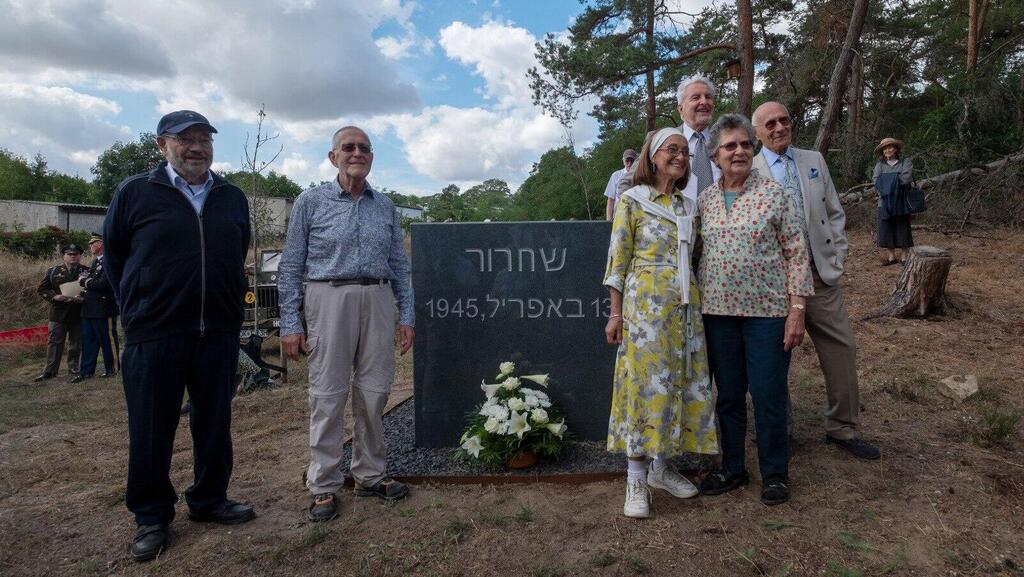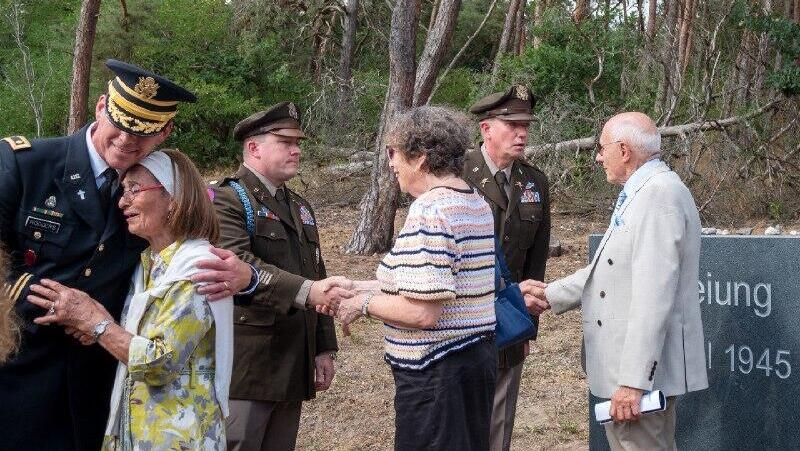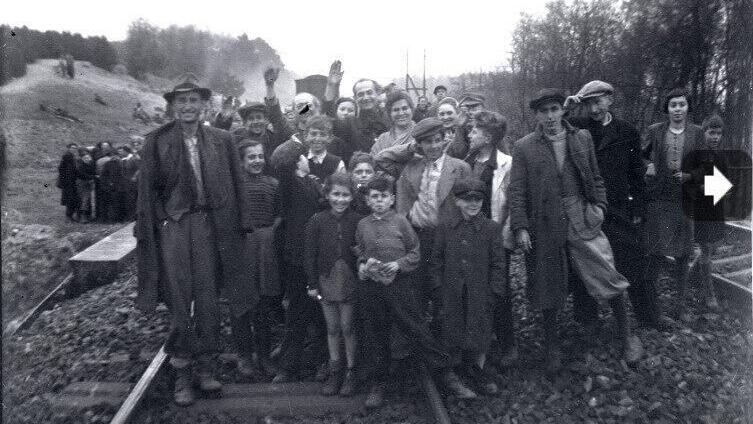"By the memorial and railroad tracks, I felt our victory, the Holocaust survivors, over the Nazis," said 81-year-old Miriam Mueller with excitement.
Mueller and six other Holocaust survivors returned for the first time to the German town of Farsleben, where they were saved by American soldiers 77 years ago, to inaugurate a memorial placed near the railway with the word "liberation" written on it in Hebrew.
Miriam Mueller – then a 4-year-old girl – was on the train with her family. "These American soldiers were our angels," she said. "When they opened the train car doors, the Jewish prisoners fell like sardines packed in a tin box. We knew we weren't going to be set free. Why would the Germans do it?"
"We didn't know where the Nazis were taking us. We thought we are going to die. I was on that train with my parents, grandparents, and my uncle. I'm the only one who survived."
Some 2,500 Jews were on the train that the American 30th Infantry Division liberated. They were transported from the Bergen-Belsen concentration camp to Theresienstadt Ghetto, just days before the end of World War II.
Since all the soldiers who rescued them are no longer alive, the survivors met representatives of the 30th Division, as well as the children of some of the liberators who arrived especially for the event.
The encounter between the survivors and the division's representatives and the children of the rescuers was thrilling and tearful.
The day of liberation was April 13, 1945. The train was en route to Theresienstadt Ghetto, and the Germans on it were ordered to blow it up with all 2,500 passengers on board if they failed to reach their destination. After six days of travel, the train stopped near the village of Farsleben.
Around the afternoon of that day, an American patrol vehicle, accompanied by a U.S. Army tank, arrived from the hills. These were soldiers from the 30th Division. The Nazis noticed American tanks and fled, leaving behind 2,500 Jews, one-third of whom were children.
As the Nazis fled, some Jews, especially women and children, stood up and ran toward the American soldiers cheering. Only then did the soldiers notice the terrible condition in which the Jewish passengers were.
George Gross, the commander of the American tank described the encounter: "Each one of them looked like a human skeleton, they were famished and sick. And when they saw us, they began to laugh with joy, if you can call it laughter. It was more an outbreak, of pure, almost hysterical sigh of relief."
The Holocaust survivors said that when they saw the Americans, they hugged them and cried tears of happiness. One of the American soldiers, Abraham Cohen, shouted at the terrified prisoners "I'm Jewish" in Yiddish and showed them his Star of David necklace.
At the ceremony, Mueller tearfully hugged American officers. She even met two children of an American tank commander, Carol Walsh, who also was part of the soldiers who rescued them. Carol Walsh's daughter said, "my father always said they just did their job and weren't heroes. The Holocaust survivors were the real heroes."
Only a few of the 2,500 Holocaust survivors remain alive to this day, mostly those who were young children at the time of their liberation.




